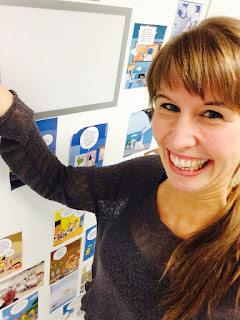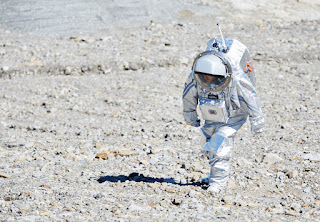how living in confined environments can teach you about the most important factor related to freedom
„I’ve learned so much about freedom! “
“Yes I can imagine! You have spent about three month on
a really confined place following a precise scientific schedule every day.”
“Yes. And I enjoyed a lot of freedom!”
“You did what???”
 It’s the ending day of a three month duration bedrest
study. I am taking the last two participants to the train station in my car.
Outside my window, it’s dark already. People are wearing thick winter jackets
and think about Christmas presents. I remember that the first days of the
study, I arrived in shorts and
It’s the ending day of a three month duration bedrest
study. I am taking the last two participants to the train station in my car.
Outside my window, it’s dark already. People are wearing thick winter jackets
and think about Christmas presents. I remember that the first days of the
study, I arrived in shorts and
I would meet up with friends in the local beer
garden after my shift.
A short flashback of my last three month: I’ve visited
five different countries, presented scientific ideas to the public, I’ve partied
and I saw the seasons changing. I lived a completely normal life, while 12
young people would spend their days in an isolated habitat, in which
everything, even the temperature of the space, would be controlled and
documented. Every day they would wake up at 6:30am – and there was no moment in
which they could decide about their nutrition or just enjoy a walk outside.
And now, this person, sitting next to me in my car, tells
me how much he enjoyed the feeling of freedom during the experiment.
How can we explain this phenomenon of a person
subjectively feeling free, while objectively living in a confined extreme
environment?
During my work, I had the chance to analyze the
satisfaction surveys of the past studies we have conducted at this place. We
would research isolation, physiological changes and other related questions. One
of the last questions in this survey directly asked the participants, what
would help them the most to survive this time. The answer would be the same
every time: the social support by our team. A familiar atmosphere, jokes,
someone listening to you or a hug when you feel sad.
 What I’ve learned out of this is: if everything is
missing: fresh air, autonomy, your favorite meal or privacy, there is one
factor which can lead you through this time: human support.
What I’ve learned out of this is: if everything is
missing: fresh air, autonomy, your favorite meal or privacy, there is one
factor which can lead you through this time: human support.
Let’s enjoy a small flashback into history to verify
this idea: here we meet the famous psychologist Viktor E. Frankl, who survived
the under the horrors of Holocaust in the 1940s. He summed up his life in
Concentration Camps and detected some factors which would him and his mates to
go through this situation. There, he mentioned optimism and humor as a
significant factor, but also the future perspective and – human support and
love. These things, embedded in his daily life, would help him to forget bad
moments and to conquer the hate surrounding him every day.
There are studies which research the effect of social
support on those, who have to suffer chronical diseases. Results of these
studies show, that there is a correlation between social support and positive progression
of a disease. Means: those who enjoy people supporting them during a stressful
period of time might conquer the disease much better than others without people
close to them.
We are still in my car, nearly arriving at the train
station. I have hard times imagining how someone being stuck on 364qm² might
talk about freedom like this.
“There is another factor, which helped me to feel free
during the time.”
“We all met in really pure conditions. Through the
work we would know things about each other; we usually do not share to people
in society.”
“True. I know how often you would have to go to
bathroom and how fast you fell asleep at night.”
“Yes! And not having to hide these things, just being,
that creates a feeling of freedom.”
I can see the train station at the end of the road.
Pictures of different environments, related to caring situations, appear in my memory.
I remember how much we laughed, when I worked in an old people’s care. How I
felt a deep connection, when I lived in China to support young autistic
children and their families. All these situations created boundaries between
people in a natural and intense way. We would experience the smell of our
skins, and through that, the bases of our thoughts.
If we sum all this up, we have a short but intense
conclusion: in order to feel freedom, we
must share love.








